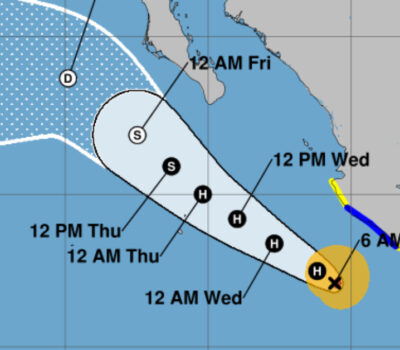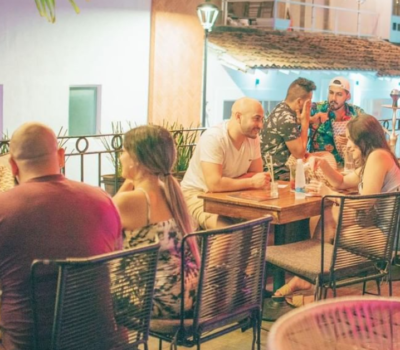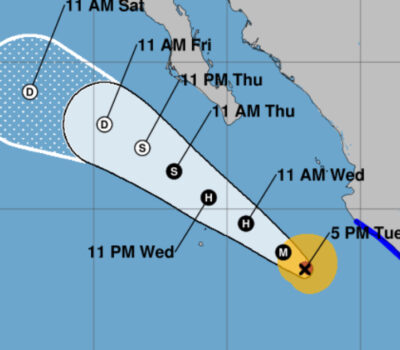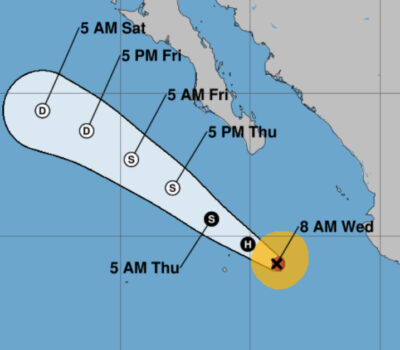Years after giving into family pressure and having an illegal abortion, one Brazilian woman says she is haunted by the secret procedure so taboo that hardly anyone will talk about it.
The woman, who only wants to be identified as F.D., went to a clinic hidden away in the southern state of Paraná for an abortion when she was a student.
Ordered by her family to keep silent, F.D. says the secrecy and shame has stayed with her.
“For me it was something very violent, very aggressive and terrible,” she said.
Roughly one million women each year seek abortions to end unwanted pregnancies in Brazil, where abortion is illegal except in cases of rape or incest or if the life of the mother is in danger.
Brazil has raided and closed down hundreds of secret abortion clinics across the country over the last decade.
Once tolerated, the clinics have become the target of a clampdown which human rights groups say is due to a rising numbers of evangelical Christians in the Brazilian Congress.
Just weeks ago, two doctors and a patient were arrested at a secret clinic in Rio de Janeiro’s glitzy Copacabana district.
The gynecologist and anesthetist were in the middle of a procedure when police came through the doors. The gynecologist works by day at a hospital in Leblon, one of Rio’s wealthiest neighborhoods.
If convicted, the doctors face up to four years in prison. Women who undergo illegal abortions can face up to three years in prison, though such sentences are rare.
The arrests in such a high-priced district highlight Brazil’s gaping social divide, which leaves rich and poor women with very different options.
Women without means turn to unsafe backstreet operations or try to carry out the procedure themselves, which can result in botched abortions or death.
Brazil’s National Health System estimates that 250,000 women a year arrive in hospital emergency rooms with health problems that are a direct consequence of unsafe abortions.
Brazilian press reports have said that a woman dies every two days from an illegal abortion.
One botched case was that of Jandira Magdalena dos Santos Cruz, a young woman last seen getting into a car in Rio in 2014 to be taken to a clandestine clinic to end a 16-week pregnancy.
Her mutilated and charred body was found the next day.
Police said a criminal network likely ran the illicit clinic and probably killed Cruz after she developed complications they could not handle.
Women with means, on the other hand, pay expensive fees at high-end clinics with legitimate, moonlighting doctors.
F.D. was referred to a clinic by her boyfriend’s father, a doctor himself. She says it was luxurious, well-organized and costly.
Being so secret and illegal, however, the abortion left her with psychological scars, she said. She said she also felt pressured into it by her conservative Roman Catholic family.
“There are people who go and get it done and then forget, but there are others, more sensitive people like me, who are hurt by it for the rest of their lives,” she said.
“It’s an incredible pain which afflicts you every day of your life,” she said.
Now married and wanting to start a family, she said she struggles to talk freely about her abortion in a nation that views it so critically.
OPPOSITION TO CHANGE
While campaigners and United Nations officials have called for an easing of abortion laws, in light of the mosquito-borne Zika virus that is linked to severe birth defects, Brazil’s Congress, brimming with evangelical Christians and Catholics, staunchly opposes any such change.
The population, two-thirds Catholic, also is largely opposed to legalization, polls show.
“Because of this, the majority of women have an abortion in secret and then don’t tell anyone,” said Vanessa Dios, a researcher at Brasilia-based women’s rights group Anis.
“They are afraid of being arrested but also morally judged,” she said, adding that some women have been excommunicated or thrown out of their church.
One consequence of Brazil’s strict abortion laws is women turning outside the country for help.
Medical abortions, in which women use pills such as misoprostol in the early stages of pregnancy, are growing more common in Brazil, according to the U.S.-based Guttmacher Institute and Women on Web, an Amsterdam-based reproductive rights group that provides medications.
“I’ve noticed more women coming to us since the Zika crisis started,” said Leticia Zenevich of Women on Web.
But some women who buy the pills online have reported that the Brazilian state regulator Anvisa seized packages containing the medication, Zenevich said.
Emails sent to the group from Brazilian women lament their lack of options. Several described themselves as “desperate” and unable to afford to raise a child.
One wrote that she found phony misoprostol pills sold in Paraguay and that the internet “is full of scams.”
“I cannot really trust anyone,” she said.
(Reporting by Sophie Davies, Editing by Ellen Wulfhorst; Please credit the Thomson Reuters Foundation, the charitable arm of Thomson Reuters, that covers humanitarian news, women’s rights, trafficking, property rights and climate change. Visit news.trust.org)
Years after giving into family pressure and having an illegal abortion, one Brazilian woman says she is haunted by the secret procedure so taboo that . . .












